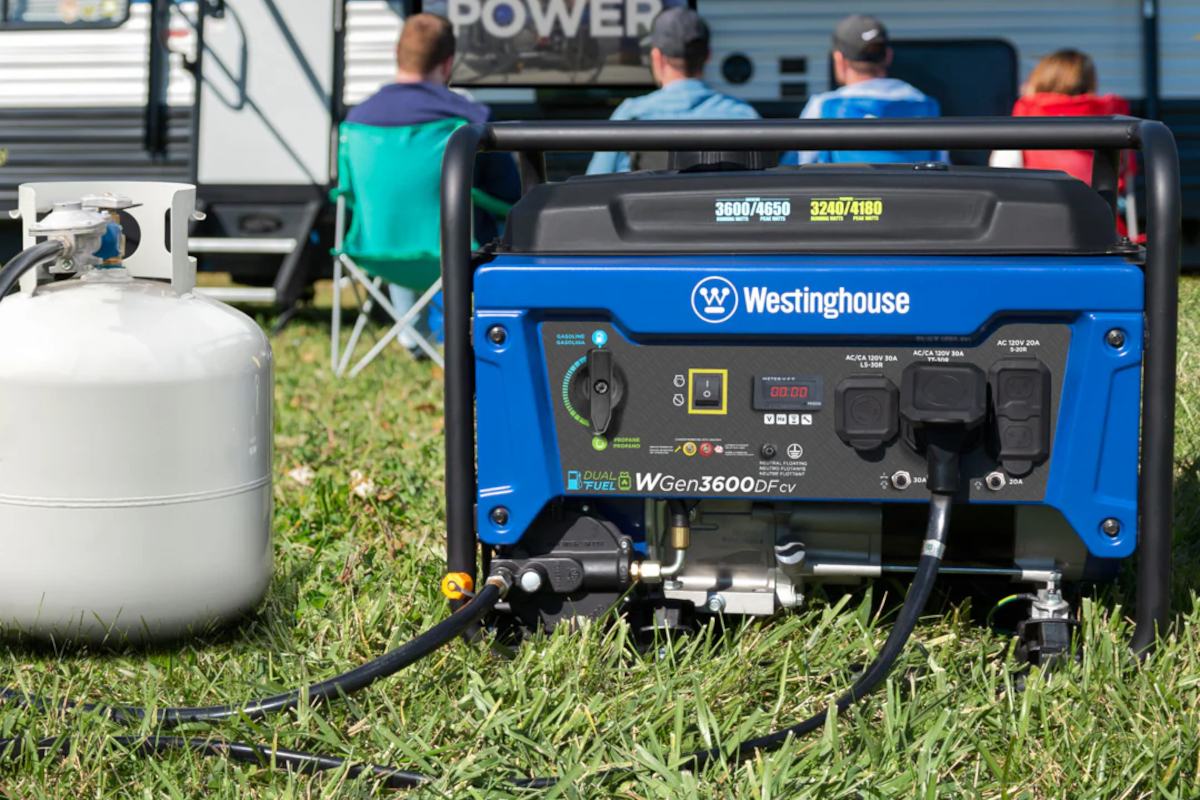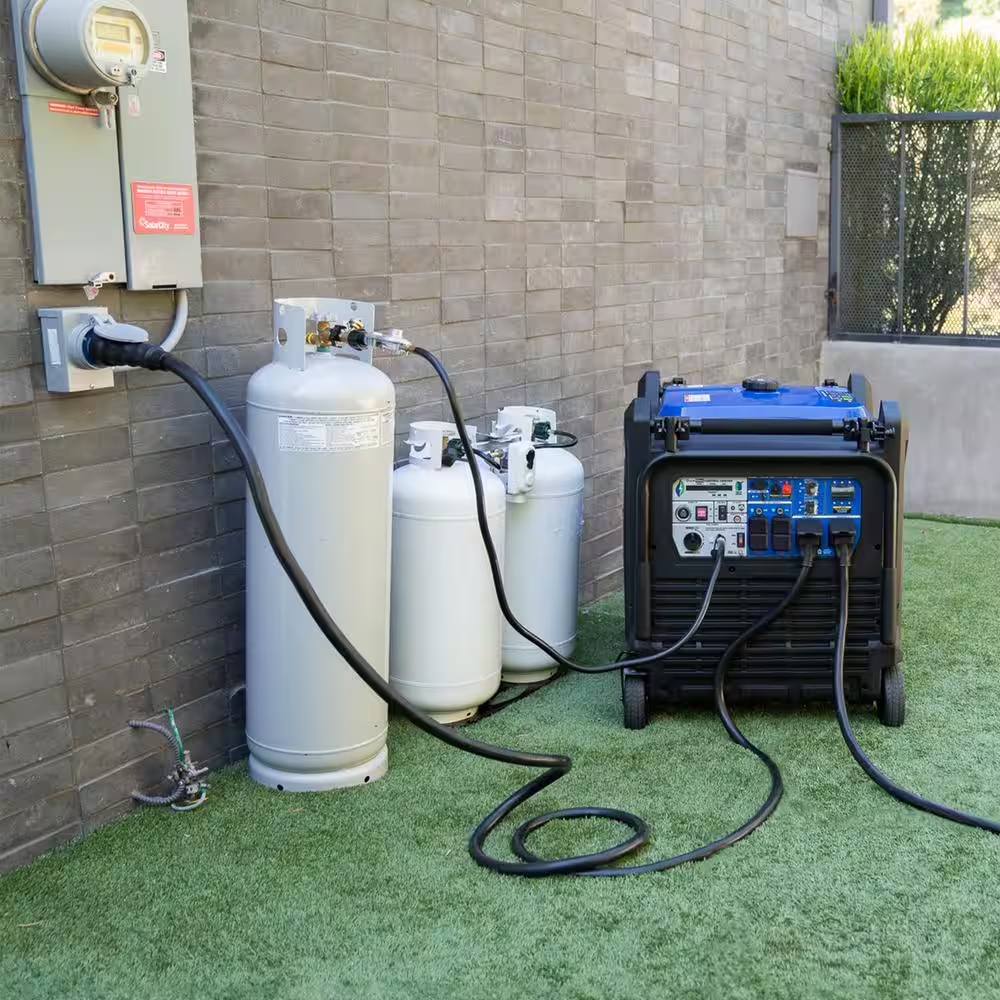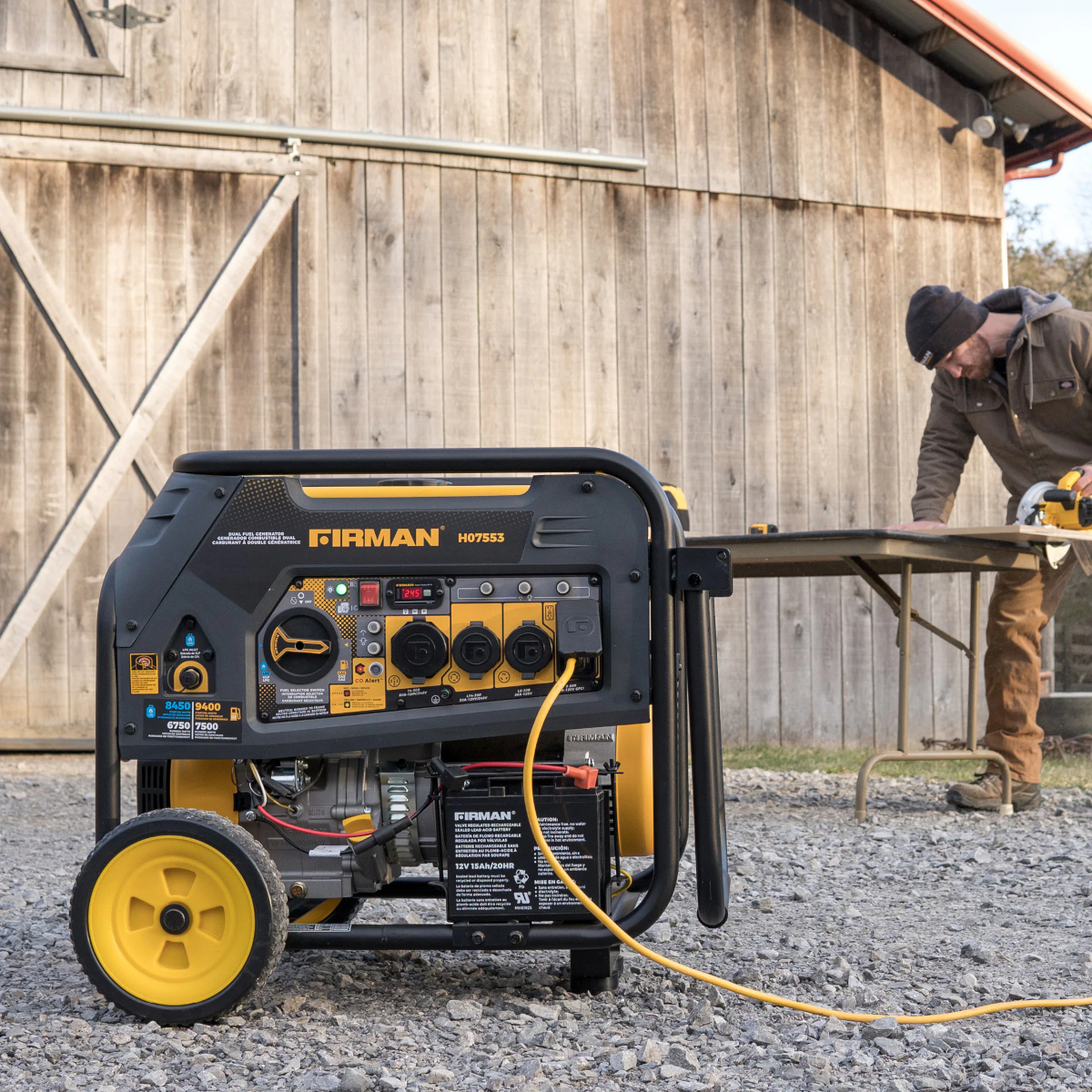

We may earn revenue from the products available on this page and participate in affiliate programs. Learn More ›
Q: I’m looking at new generators but I’m not sure what type of fuel is best. Propane is cheaper than gas, but how much propane does a generator use? I’d also like to know if there are any disadvantages to using propane.
A: These questions crop up quite often, and although it’s not difficult to take a rough average of generator fuel consumption, there are other key factors that should also be considered before you make your choice. For example, in addition to the amount of fuel used, it’s useful to know how much energy that fuel produces. So in this article we’re looking at the overall efficiency of a propane generator, and making some comparisons with other types of fuel.
You’ll also want to think about how big of a generator you need, because along with propane usage, you’ll want to consider run time. Do you want to power the whole house in an outage? Do you want a large portable generator for key appliances in an emergency? Or do you want a lightweight inverter generator for tailgating or camping?
On average, generators burn 2 to 4 gallons of propane per hour.
We searched for a propane usage estimator without success. It seems they exist for boilers and furnaces, but not generators. So we took numbers from three installers of whole house standby generators. Each provided slightly different figures but the average for generators that run on propane was from 2 to 4 gallons per hour when running at full capacity. Scott Levene, vice president of fuel specialist Levco in Trumbull, Connecticut, pointed out that it’s important to consider that capacity. “Generators running at full capacity consume significantly more fuel than when operating at partial load. For instance, a generator rated at 20 kW might use about 3.0 gallons of propane per hour at full load, but only around 1.5 gallons per hour at half load,” he says. “This variation highlights the importance of understanding your typical power needs and choosing a generator that matches them closely to avoid unnecessary fuel use.”
If we look at portable generator fuel usage, the figures initially look different because manufacturers typically give run time, not gallons per hour (GPH). For example, among the best generators in our recent review, the overall top pick from Champion runs for up to 5 hours at 50 percent load (capacity). That’s from a 7.7-gallon tank. So simple math will give us GPH: if we divide 7.7 by 5 we get 1.54. That’s a similar figure to the 20 kW whole-house generator in our first example.

It varies by generator size, age, and condition.
We need to be careful with the first part of this statement because generator fuel efficiency doesn’t so much depend on size, but—as seen in Levene’s above comment—it depends on how hard the generator has to work. To maximize fuel economy, you need to specify the appropriate size generator for the job. Something that’s underpowered, and running at full capacity a lot of the time, will use more fuel than a larger model. Although the larger model costs more initially, it could save you money in the long run.
Age and condition will have an impact eventually. Propane generators have an internal combustion engine, much like in your car or truck. It will wear eventually, and that inevitably results in higher fuel consumption. We’ll look at ways to minimize that impact in a moment.
The type of generator and how long it runs also play a part in how much propane a generator uses.
This is another statement you might see that could be slightly misleading. Regardless of what fuel they use, there are two main types of generator: conventional and inverter. The best inverter generators are often promoted as being more fuel-efficient than their conventional rivals.
As an example, take the Duromax XP16000iH, an inverter model that’s powerful enough for emergency home backup. Its run time at 50 percent load is 6 hours from a 40 pound (9.4 gallon) propane tank. That gives us 1.56 GPH. It’s competitive for a portable generator, but well below the 2 to 4 GPH expected from a fixed, whole-house model. Once again, it’s about having the right propane generator for the job. Propane inverter generators like the Duromax are portable, and so much more versatile, but they don’t necessarily have better fuel consumption.
As for how long it runs, that shouldn’t make any difference. The best portable propane generators can run continually for 150 to 200 hours. As long as the propane tanks for generators are large enough, a standby propane generator can run for several weeks.
Compared to natural gas, propane generators are more fuel efficient, but they lose out to gasoline.
Depending on where you live it may be more convenient to have natural gas piped in than choose a propane tank generator. At the time of writing, natural gas is also significantly cheaper. However, propane is much denser so it produces more energy. You would need about twice as much natural gas for the equivalent generator output.
The situation is reversed for gasoline, although the difference isn’t as great. Propane is cheaper than gas but according to the US Department of Energy only produces about 75 percent of the power. So overall it’s difficult to separate the two. However, if you’re using the generator for standby power there is another important consideration: gasoline has a shelf life. It will become unusable after 6 to 12 months. Propane does not, and can be stored for years without problems.

Proper use and maintenance matter.
Understanding how the equipment works most efficiently will have a major impact on how much propane a generator uses. As we’ve mentioned, a generator that’s constantly running at full capacity will be much less economical than one that’s usually running at half load. If you’re having difficulty with the numbers, it’s always a good idea to talk to a pro rather than guess and risk making an expensive mistake. Levene has more valuable advice: “Invest in a high-efficiency generator: newer models often have better fuel efficiency and can automatically adjust their output to match the current load, using less fuel when demand is lower. Also, try to implement load management: Prioritize critical loads and turn off non-essential appliances during power outages. This practice helps keep fuel consumption lower.”
A good generator maintenance regimen is also key. All propane generators benefit from regular cleaning and servicing. Most people with average DIY skills will have no problems tackling the demands of a portable propane generator. Whole-house standby models are more complex so an annual contract is recommended.
When they are properly looked after, a portable generator can last 10 years or more, and a standby propane generator between 20 and 30 years. So a small investment in regular maintenance will be well rewarded.
